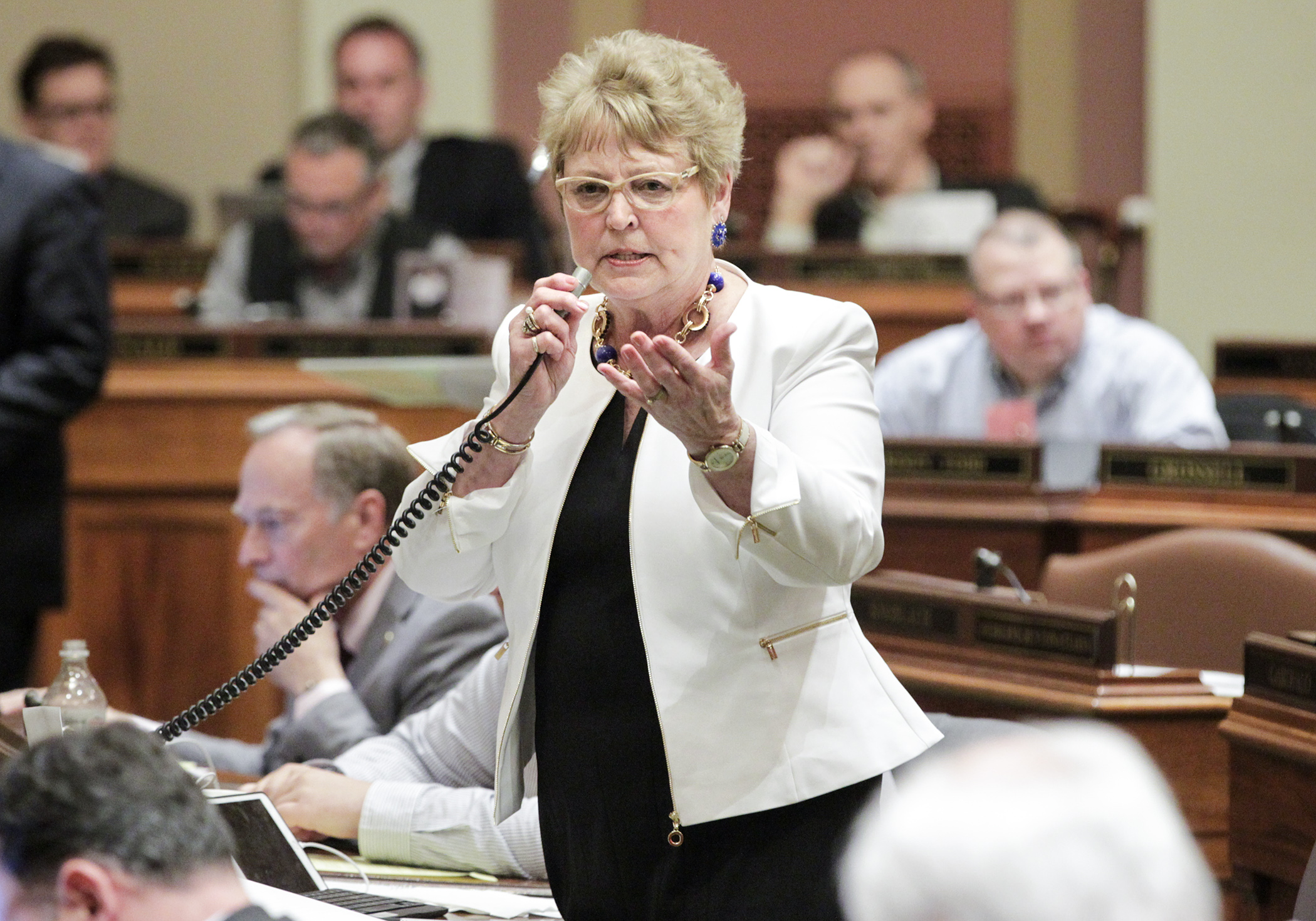Overhaul of the state's teacher licensure system passes House

Seeking solutions for a licensure system that opponents allege has stymied the supply of qualified teachers for years, legislators have crafted a proposal they feel will not only help replenish the supply of qualified candidates entering the profession, but make the process itself easier to understand.
HF140*/SF4, sponsored by Rep. Sondra Erickson (R-Princeton) and Sen. Eric Pratt (R-Prior Lake), would serve as a teacher licensure overhaul for Minnesota by creating a new agency to oversee the candidate licensure process and create a four-tier licensure system.
The House on Tuesday passed a conference committee report on the bill 76-54. The Senate repassed the bill later in the day on a 36-31 vote; it will now go to Gov. Mark Dayton's desk.
Erickson, who chairs the House Education Innovation Policy Committee, touted the bill as “a historic day in reform for education” that “raises the bar for our teachers and candidates for the classroom. It is innovative and it is reform.”
The bill calls for a new 11-member Professional Educator Licensing and Standards Board to evaluate qualified candidates according to state requirements and report annually on teacher preparation programs and school performance. Its creation would be a transfer of power from the Board of Teaching (which would dissolve) and the Department of Education; its membership would include governor appointees, educators and administrators.
Under the four-tier licensure system, incoming candidates would be required to pass an examination of general teaching knowledge and licensure-specific skills, with each consecutive tier offering a specific license expiration and increased requirements. A “licensure-by-portfolio” process would also allow candidates to acquire a license via a submitted portfolio demonstrating teaching and content competence.
The need to overhaul the teacher licensure program follows a report by the Office of Legislative Auditor citing deficiencies and concerns from rural school districts facing teacher shortages.
“Overall, I want to say I think we’ve had a bipartisan agreement that we want high-quality, effective teachers in the classroom and I think that’s what this bill does,” Pratt said at a Tuesday morning news conference.
Despite voting for the bill, Rep. Carlos Mariani (DFL-St. Paul) voiced concerns over funding the overhaul. Pointing to Dayton’s veto of the omnibus education finance bill, Mariani said there’s no way to pay for the new licensure system.
“There’s no funding in this bill,” he said. “So it really poses an issue, members, about how we’re going to be able to do this massive change if there is no funding to go along with that.”
Rep. Jenifer Loon (R-Eden Prairie) sponsors the omnibus education funding bill, HF890*/SF718, that Dayton vetoed. She said her final finance bill would fund the new licensure program.
Through conference committee discussion, concerns arose over the qualifications regarding the Tier 1 license — which would not require a bachelor’s degree, but instead could be validated through other training and certification — and the timeline in which the statewide mandates would need to be implemented.
“As we balance the current problem of teacher supply, we don’t want to rush to decisions that, down the road, might lessen the quality of teachers in front of our kids,” Education Commissioner Brenda Cassellius said at a May 1 committee meeting. “I feel strongly we should not have teachers without a bachelor’s degree.”
Also at the meeting, Nels Onstad, director of educator licensing with the Department of Education, recommended a phase-in component for the proposed changes that would detail an implementation process and timeline for school districts.
House Public Information Services writer Nick Longworth contributed to this story.
Related Articles
Search Session Daily
Advanced Search OptionsPriority Dailies
Ways and Means Committee OKs proposed $512 million supplemental budget on party-line vote
By Mike Cook Meeting more needs or fiscal irresponsibility is one way to sum up the differences among the two parties on a supplemental spending package a year after a $72 billion state budg...
Meeting more needs or fiscal irresponsibility is one way to sum up the differences among the two parties on a supplemental spending package a year after a $72 billion state budg...
Minnesota’s projected budget surplus balloons to $3.7 billion, but fiscal pressure still looms
By Rob Hubbard Just as Minnesota has experienced a warmer winter than usual, so has the state’s budget outlook warmed over the past few months.
On Thursday, Minnesota Management and Budget...
Just as Minnesota has experienced a warmer winter than usual, so has the state’s budget outlook warmed over the past few months.
On Thursday, Minnesota Management and Budget...